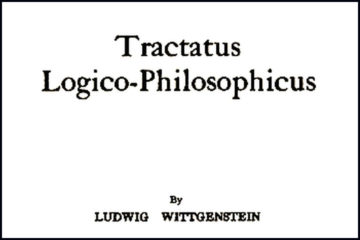Jared Marcel Pollen in the Los Angeles Review of Books:
 It surprises us to learn how much literature was penned in the trenches of World War I. The poems of Wilfred Owen or the early tales of Tolkien, for example, are all the more exceptional when we consider that they were composed amid states of mortal terror. But the most incredible and most stupefying example perhaps is Ludwig Wittgenstein’s Tractatus Logico-Philosophicus. Less than a hundred pages long, it is a slender book that, according to its author, set about to find a “final solution” to the problems of philosophy (a phrase made even more cryptic by the knowledge that Wittgenstein and Hitler were once schoolmates). And indeed, when the Tractatus was published in the fall of 1921, Wittgenstein effectively “retired” from his trade, believing that he’d found the basement of Western philosophy and had turned off the lights when he left.
It surprises us to learn how much literature was penned in the trenches of World War I. The poems of Wilfred Owen or the early tales of Tolkien, for example, are all the more exceptional when we consider that they were composed amid states of mortal terror. But the most incredible and most stupefying example perhaps is Ludwig Wittgenstein’s Tractatus Logico-Philosophicus. Less than a hundred pages long, it is a slender book that, according to its author, set about to find a “final solution” to the problems of philosophy (a phrase made even more cryptic by the knowledge that Wittgenstein and Hitler were once schoolmates). And indeed, when the Tractatus was published in the fall of 1921, Wittgenstein effectively “retired” from his trade, believing that he’d found the basement of Western philosophy and had turned off the lights when he left.
The Tractatus began as a series of notes that Wittgenstein kept in his bag throughout his tours with the Austrian army.
More here.
